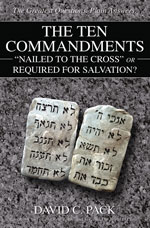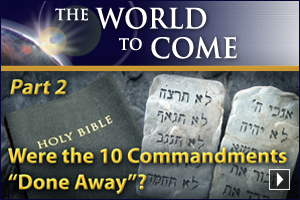Does this mean the others were done away? No! King David said, “all of His commandments are sure. They stand fast forever and ever…” (Psa. 111:7-8). Christ, as God of the Old Testament (I Cor. 10:4), also stated, “I am the Lord, I change not” (Mal. 3:6).
Because Christ was speaking to a Jew, he had to clarify of which commandments he was speaking. By citing some of the Ten Commandments, He clarified that He was speaking about God’s commands, not the commands of the Sanhedrin (the Jewish “Supreme Court”).
To clarify this further, look at which commandments He did state: “You shall do no murder, You shall not commit adultery, You shall not steal, You shall not bear false witness, Honor your father and your mother: and, You shall love your neighbor as yourself.”
Christ wanted to reassert to the listener the importance of loving his neighbor (Matt. 19:22). The rich man’s refusal to use his wealth to help others proved that he needed a lesson in these principles.
One should also note the commandments that Christ did not directly mention: “You shall have no other gods before me…You shall not make unto you any graven image…You shall not take the name of the Lord your God in vain…Remember the Sabbath day, to keep it holy…You shall not covet…” (Ex. 20:3-8, 17).
Because Christ did not directly refer to these commandments, is it alright to break them? For instance, is it acceptable to worship other gods? To swear, break the Sabbath or covet? The answer: of course not!
Notice James 2:10: “For whosoever shall keep the whole law, and yet offend in one point, he is guilty of all.” Christ inspired James to write that every point of the law is crucial. Christ did not need to state all Ten Commandments, because if you break any of them, you are guilty of breaking all of them.


















